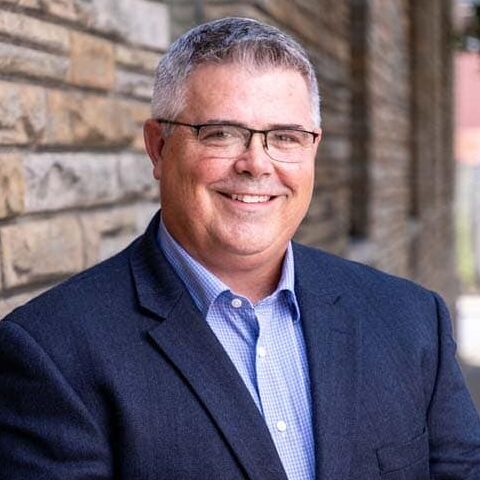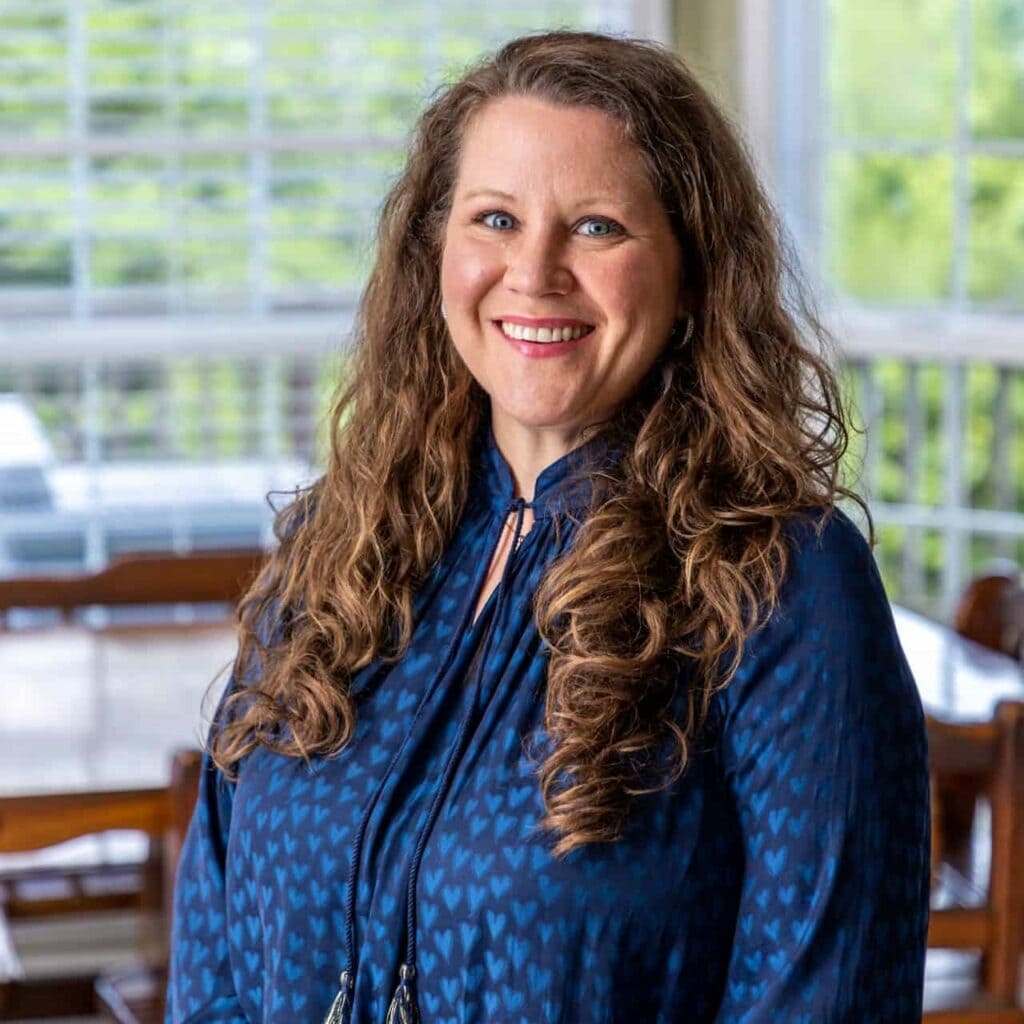What leaders are saying about the employee-boss relationship.
Leadership is one of the most difficult roles a person can fulfill. Some people are natural-born leaders, while others are flying by the seat of their pants. Either way, there are common strategies and beliefs among leaders that contribute to a company’s success.
We had the privilege of interviewing seven business leaders, and we asked each one the same questions about leadership. Most answers were surprisingly similar and aligned with each other. We want to share the insight we received with you in hopes of helping your business thrive.
How do you get the most out of your employees?
Our leaders agree: prioritizing communication, creating a safe space, and investing in employees both personally and professionally are important ways to create an office culture for people to thrive.
Dr. Rebecca Cardona, Founder of Fear Nothing Coaching, says that in order to create a safe space, the leader must genuinely care about their employees, which can only happen with mutual trust and respect. "Trust can be built by investing in employees both personally and professionally," explains Stephanie Polen, President of The Polen Group and Founder of Unshakeable ™. The Social Brand offers free life coaching and therapy sessions to its employees, which has not only provided a safe space for people to discuss any life problem, but has shown the employees that they are an investment to the business, and their mental health takes precedence.
There are other ways to create that trust, however, like offering autonomy to employees, like Dr. Michelle Gordon, Surgeon/Private Practice Owner and Coach, suggests, or providing positive reinforcement, like Jim Samocki, President of Doran Manufacturing, and Karlee Goodwin, HR leader for Action VFX, do. Goodwin explains that because employees are investing in the future of the business, leaders should do the same in return for their employees' futures. She offers programs like Career Development Plans, which guide her employees to assess their short-term and long-term goals.
Leadership coach Bob Camp agrees that communication and genuine care are essential for creating a safe workplace. Before Camp communicates with employees, especially after they have made a mistake, he considers their intentions. If a mistake is made with honest intentions, he encourages them to grow and learn instead of punishing them. This way, he is able to hold his employees accountable without enforcing fear tactics. "The truth is most people are doing the best they can with the tools they have," Camp says. Once employees feel safe and respected, they are able to perform better.

What is one common leadership practice you would advise against?
While safety, communication, respect, and trust are fundamental attributes of a successful business, most leaders didn’t learn these elements of leadership overnight. Many of our leaders share the same beliefs concerning "no-go" areas of leadership, which they have learned from years of experience.
One of the biggest mentalities in leadership to avoid is micromanaging. "Micromanaging can alienate employees, causing an increase in resentment and turnover," Dr. Michelle Gordon says, and she’s not alone in her beliefs. According to Karlee Goodwin, a team cannot work effectively in a highly controlled environment, and in order to avoid the desire to micromanage, leaders should hire people they can trust.
Avoiding micromanaging techniques is important, but Bob Camp believes leaders should be more attentive and pay closer attention to what is and isn’t working. He says to reward employees accordingly and provide tools and resources when something is not working.
One reward that Amanda Painter likes to offer is the opportunity for her employees to feel fulfilled, and that comes when the leader can truly listen to the needs of their employees. The Social Brand agrees with this type of reward and offering their employees the opportunity for a hybrid work schedule.
Differentiating between attentiveness and micromanagement is important. Being attentive requires listening, understanding, and acceptance. Micromanaging is about using control and fear to accomplish goals, which Dr. Rebecca Cardona says to be cautious of. One way to be attentive is to avoid waiting for performance reviews to communicate. Stephanie Polen believes in an "open door" policy and likes to create a safe place for communication. This builds trust, which eliminates micromanagement and increases productivity and overall satisfaction.

What role does messaging play in getting the most out of your team?
Our leaders all say to prioritize intention and align values with clear, authentic messaging to create a successful internal culture and to show potential clients what makes your company unique.
The key to increasing employee productivity seems to be the alignment of values and messaging. Stephanie Polen says, "While having a solid mission statement and value proposition is important for recruitment, it’s important to avoid getting caught up in the development of those statements." In other words, when messaging is too contrived, the point can be missed. She advises focusing on the truth of the internal culture, claiming that everything else will follow. Jim Samocki too says, "Fancy taglines are not necessary, especially when they don’t embody the company’s values and culture."
The team at The Social Brand enjoys getting to know their clients, their stories, as well as the employees of an organziation when writing mission statements or taglines, so the tagline accurately reflects the culture and values of the company.
Bob Camp and Dr. Rebecca Cardona agree that messaging can play an important role in relaying expectations. Making sure the messaging reflects the values of the culture is important, but just as important is making sure the messaging reflects the expectations of being a willing participant in that culture.
No matter the messaging, Dr. Michelle Gordon and Amanda Painter know that even with the best messaging, actions speak louder than words.
What role does recruitment play in getting the most out of your team?
While most leaders agree that skills are important, they admit that looking at the person and their values should take precedence. Using intention and aligning values will lead to overall success and team fulfillment.
Jim Samocki believes there's a direct correlation between recruitment and retention. The way to retain employees is by recruiting with intention. The recruitment team at Doran Manufacturing, for example, looks at the candidate for who they are as a person before looking at their full scope of abilities, then places them within the company according to their individual skills. Samocki also says to truly be intentional during the recruitment process, leaders must allow employees to interact with candidates too.
A value-minded leader, Amanda Painter, also believes it is important to be intentional, so that the current culture isn’t disrupted and the new recruit can elevate, not hinder, the team.
One way to ensure that recruits align with the values of the team is to hire team members through word of mouth, like Dr. Michelle Gordon. This provides an opportunity to get to know the candidates, spend time with them, and make sure their values align with the values of the business and the rest of the team. Similarly, Karlee Goodwin enjoys a more personable approach to recruiting. She says that recruitment can seem one-sided and places importance on bringing good people into her network.
Although Bob Camp believes values are important, he takes a more methodical approach to recruiting and suggests a three-step strategy for recruiting new employees. The first step is to determine what your team needs to work at a higher level. Second, define criteria for your ideal hire, which, like other leaders have said, should include values, professional, and personal attributes. Finally, Camp recommends interviewing at least three (preferably more) candidates. The practice of hiring the first candidate is a slippery slope, and he says it’s important to give yourself options.
Whether bringing in new team members via word of mouth or a more formal recruiting process, Stephanie Polen believes that messaging should always play a large role. Remaining clear and honest about the company’s values from the start is critical to the health of the team and business.

What advice would you give yourself if it were your first day in a leadership role?
A predominant characteristic of good leadership is the ability to practice self-awareness. From failing with grace to supporting your own voice, our leaders believe that looking inward is a critical element to running a successful business.
Dr. Michelle Gordon gets straight to the point and says that if there is a problem within the company, the leader is most likely to be blamed. Jim Samocki builds on that idea and believes that failing is not only acceptable, but essential for growth. Remaining authentic and humble, Bob Camp believes, is the name of the game.
Self-awareness can mean being internally critical, but it can also mean empowering yourself, which Karlee Goodwin says is a great thing to do when starting out as a leader. She expresses the importance of leaders learning to value their own voices by learning to trust themselves and their employees.
Empowering yourself can also look like enforcing your own boundaries. Amanda Painter says to be careful of burnout, which can occur quickly when starting a leadership role. Goodwin agrees that burnout can occur, and in order to avoid it, she says, instead of making emotional decisions, just look at the data. This will save energy and time and direct you down the path to success. The Social Brand recently posted a blog about lessons in leadership, make sure to check it out!
Dr. Rebecca Cardona says to praise differences and diversity—two valuable attributes for a company.
What does it mean to be a good leader?

What does it mean to be a good leader?
A good leader is able to practice self-awareness and humility, set expectations that clearly reflect the values of the culture, find employees who align with that culture, and encourage them to succeed by offering tools, resources, autonomy, and trust. While some leaders are born to lead, others are placed in that position without prior knowledge of the role. Either way, good leaders are always learning, growing, and failing, and if they’re really passionate, they’ll sometimes succeed in the process.
Make sure to learn more about our interviewees by reading their bios below. Do you have anything to add to how to get the best out of your employees? We’re all ears! Shoot us a message at info@thesocialbrandtn.com or give us a call at 865-282-2399. We would love to hear your thoughts and insights!
Meet our leaders!

Jim Samocki is the President of Doran Manufacturing, a privately-held safety and maintenance technology company for commercial vehicles based in Cincinnati, Ohio. Jim has been in an executive leadership position at Doran for 15 years and held sales and product development leadership roles before joining Doran. He earned his undergraduate degree from the Farmer School of Business at Miami University and his MBA from the Fisher School of Business at The Ohio State University. Jim has also been asked to provide his leadership perspective as a guest on podcasts such as The Talent Magnet Institute with Mike Sipple, Jr. and Win at Home First with Cory Carlson.

Dr. Michelle Gordon was a burned-out surgeon who grew her single-specialty practice to five surgeons only to reinforce the fact that she was in the wrong career! Decreasing reimbursement and the pandemic sealed the deal. After finding out how to be happy in any circumstance, she pivoted to coaching—helping others improve the most important relationship in their lives: the one with themselves. She's also the host of the Launch Your Life Podcast.

Karlee Goodwin has a passion for people! After building a solid foundation in customer service, Karlee served as Community Director of Atlanta Tech Village. There she discovered her love of helping startup founders succeed on their startup journey. After marrying her husband, Harris, Karlee moved to Johnson City, Tennessee, where she connected with Spark Plaza, which launched her into a great community. The collaborative environment led to a board seat with FoundersForge, and eventually a People and Operations role at ActionVFX. Focusing on her role as an HR leader, Karlee has recently achieved her SHRM certification. Karlee is also learning the ropes of being a working mom as she wrangles her smiling 7-month-old, Harry!

Bob Camp is a business growth specialist with over 40 years of experience growing businesses with national and global reach. He coaches leaders to achieve their goals and has developed programs that help them build successful companies and grow existing ones into high-performing organizations, meeting financial obligations and leaving room for personal fulfillment along the way.

Amanda J. Painter is a business finance and human resources consultant as well as an author. She is a four-time published author with an entire series for small businesses. The Team Solution Series: HR Coaching to Grow Teams and Profit provides more than ideas—the books are full implementation plans to guide you and your team through the employee journey. The content blends Amanda’s unparalleled organizational skills with her knowledge of HR practices, highlighting her exceptional ability to improve efficiency and processes while building a culture of worth in organizations.

Stephanie Polen is the President of The Polen Group and the Founder of Unshakeable ™. In the last 20 years, she has led teams through massive business transformation in functional areas ranging from sales and marketing to product development and HR. Stephanie is an Advanced Certified Emergenetics® Instructor and uses this powerful tool to understand more about the whole individual and how to leverage their strengths for the success of the team and the organization. She is also a Certified Wayfinder Executive Coach. Stephanie was also part of the inaugural Global Team Coaching Institute Team Coaching certification. Working with this international organization, she is certified to help teams be everything they were created to be.

Dr. Rebecca Cardona is the owner of Fear Nothing Coaching. She has a bachelor's degree in academic psychology, a Master's in mental health, marriage, family, couple counseling, and a PH. D. in philosophy with a specialization in marriage, family, and couple counseling. With over 18 years of experience in behavioral health, Dr. Cardona is passionate about embracing change and guiding others to discovery and growth. Fear NoThing Coaching was built to simplify the process for others as they find freedom and strength in becoming their best self by finding their right paths and sharing their gifts with others.

